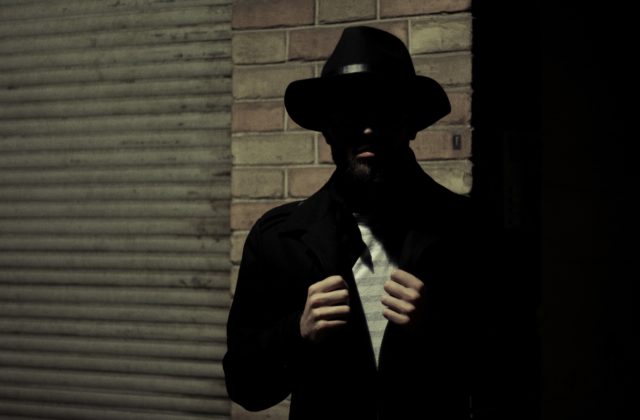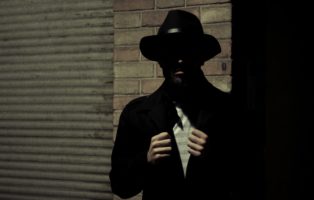Those who participated were assured that the program would remain secret
Simon started the talk by reminding his audience, that despite the images of the Senate being under attack last week, the American Senate has played an important role in holding its political leaders and the CIA accountable.
One of the most controversial moments for the CIA happened on 9 Dec 2014, when Senator Dianne Feinstein made a speech about the publication of a 500 page summary of the CIA’s secret detention and interrogation program. The declassified summary detailed the use of coercive techniques, sometimes amounting to torture. Some techniques used against Al-Qaeda suspects were water-boarding, being kept awake at night with bright lights, being chained to the freezing floor which in one instance led to the death of a detainee. This is a detailed report on how those who participated were assured that the program would remain secret. Feinstein described these acts as a stain on America’s values and its history, but argued that by making the Senate’s report public, they US could show the world that they were mature enough to learn from their mistakes.
For years the CIA via its Office of Public Affairs had tried to convince the American public that torture had helped the CIA prevent further terrorist attacks
Though the CIA challenged some of the conclusions of the report, the basic facts of how suspects were interrogated, were not challenged. The Senate’s report clearly condemned the techniques as both immoral and ineffective. However, for years the CIA via its Office of Public Affairs had tried to convince the American public that torture had helped the CIA prevent further terrorist attacks, and had led directly to the arrest or death of a number of key terrorists, including Osama Bin Laden. In background meetings with members of the press the CIA’s Office of Public Affairs gave journalists classified information which depicted torture as an effective mean of gathering information. Whereas whisteblowers like Edward Snowden and Julian Assange face decades in prison for revealing government secrets, friendly journalists who printed secrets that helped the CIA establish a positive narrative of their work faced zero consequences. No investigations were launched, no unauthorized disclosure reports were filed. In other words, it’s OK to print secrets if the CIA’s PR department has given them to you.
But by the time the Senate report was declassified, two years after Zero Dark Thirty was released, the film had already made its impact
The CIA also tried to get their message across through popular entertainment. Numerous CIA officers met Katherine Bigelow and scriptwriter Mark Boal during the production of their Academy Award nominated film Zero Dark Thirty. The film tells the story of the hunt for Bin Laden, and its narrative strongly suggests that torture led the CIA directly to Bin Laden’s Abbottabad compound. The Senate report completely rejected the film’s narrative, and both Senators John McCain and Senator Dianne Feinstein wrote to Bigelow to condemn the film’s positive depictions of torture. McCain famously was a victim of torture during the Vietnam War and one of the few voices on the Republican side of the aisle who unequivocally denounced the CIA’s interrogation techniques. But by the time the Senate report was declassified, two years after Zero Dark Thirty was released, the film had already made its impact. It did well at the box office, was very influential, and was nominated for Best Picture at the Academy Awards. Also nominated that year was another film that was the result of CIA public relations efforts – the movie Argo, which tells the story of a dramatic CIA raid to rescue American hostages in Iran by posing as a Hollywood film crew. The true-story of Argo was revealed to the American public after CIA Director George Tenet insisted it should be declassified so that, for once, the public would hear a positive story about the CIA. Argo won Best Picture that year, beating its pro-CIA rival Zero Dark Thirty.
“We either get out and sell, or we get hammered… " Phillip Mudd, Deputy Director of CIA
Within the CIA some employees did raise concerns about the Agency so adamantly defending the use of torture. But when Phillip Mudd, the Deputy Director of CIA Counter-Terrorism caught wind of the complaints, his response on the CIA’s internal messaging service was this:
“We either get out and sell, or we get hammered… We either put out our story, or we get eaten, there is no middle ground.”
Usually secret agencies have been seen as relatively detached from politics and public opinion. Their role is to provide the unvarnished truth to policy makers. This is the ideal and noble vision of secret services out there; that they serve to pursue the Truth, and nothing but the truth.
But in a sense, it doesn’t matter how well a service keeps its secrets? We will still be fascinated by them
But we know from experience that secret agencies are in the thick of it politically. They are embroiled in our basic ideas of what constitutes democracies and liberal societies. Should our governments be able to spy on us and keep secrets from us? If so, under what circumstances? As a result, intelligence services have become symbolic and attract public attention for reasons beyond their concrete activities.
So to answer the question of the talk’s title: are secret intelligence agencies all that secret?
Increasingly, due to the growth of digital technologies, whistleblowers, hard-hitting investigative journalism, official enquiries and the public relations efforts of the services themselves, they are not…. But in a sense, it doesn’t matter how well a service keeps its secrets. We will still be fascinated by them, and often where secrecy prevails our imaginations step in to fill the gap: through spy fictions, through movies, and yes, through conspiracy theories. The events we witnessed at the American capitol last week were partly a result of what happens when distrust in government and conspiracy theories about the “deep state” metastasize into violent action. Conspiracy theories, although often bizarre, are no laughing matter, and can have severe, even deadly, consequences.
Discussants
Discussant, Richard J. Aldrich said the crucial point Simon made was that the CIA has become symbolic of so many things about American foreign policy such as interventionism vs. isolationism, or the gap between American exceptionalism and the reality of their covert activities in the world. In this context the CIA has become very sensitive about leaks, but on the other hand , it has also embraced more public relations. Aldrich also argued that publicity can be used as an implement of power – when Russian agencies assassinate Putin’s critics with highly visible means, or when the CIA’s actions are unavoidably public, this can be used to frighten enemy nations, and project power.
Willemijn Aerdts is an expert on Dutch Intelligence. She said the image that students have of intelligence services is mostly based on the CIA, James Bond or the Homeland series. The situation in the Netherlands is very different than the American one. For example, the Dutch agency does not have a public affairs office. They did hold a press conference to celebrate their success in 2018, where they mention that they expelled Russian agents who were trying to hack into OPAC The Hague. The Dutch services are also much smaller than the American services, which makes it easier to keep secrets, and they don’t tend to engage as much in highly visible covert actions.
Rutger van der Hoeven discussed that secrecy can be both a strength and a weakness for an organization like the CIA, especially if they cannot sell their success stories. Simon’s talk shows how the CIA has tried to navigate through this dilemma. Over the past years this dilemma has become more pressing and the CIA has also become somewhat of a political player. Like being pulled into the Iraq WMD scandal, and their prominent role fighting in Afghanistan. Rutger had some photos which would be part of the Panel Discussion.
Watch the panel discussion between the discussants and Simon




